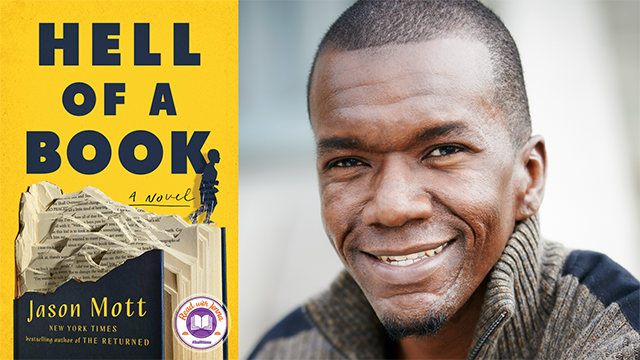In November, Aspen Words announced the longlist for the fifth annual Aspen Words Literary Prize, a $35,000 award recognizing a work of fiction that addresses a vital social issue. The selected books explore questions of freedom and identity, exile and belonging, and are set against the ravages of colonialism, consumerism, and classism. While the jury works on selecting a shortlist, Aspen Words chatted with the nominees about their work, how they view their role as a writer in this cultural and political moment, and the best piece of writing advice they’ve received.

Jason Mott is a writer of both novels and poetry. His latest work Hell of a Book is a deeply honest, electrically funny novel that goes to the heart of racism, police violence, and the hidden costs exacted upon Black Americans, and America as a whole.
How do you view your role as a writer in this cultural and political moment?
I view my role in the same way that I feel the role of writers has always been: as someone attempting to engender empathy and express some form of socio-moral philosophy through storytelling. I know that probably sounds like a fancy mouthful, but I believe it’s true. Storytelling has always been the way that we, as a species, try to share our inner worlds with one another. We want others to feel the emotions we’ve experienced and we want others to care about the things we care about. So I believe that’s my goal. I care about humanity’s relationship with morality and ethics, and I care about the treatment of overlooked voices. I hope that my writing reflects that.
What inspired you to write Hell of a Book?
A mixture of things. The idea first came to me as I was on tour for my first novel, The Returned, back in 2013. It was such a wild ride that I thought others would enjoy hearing about it. I wrote about half a manuscript that didn’t quite feel complete, so I put it away. Fast forward a few years to around the time of the Freddie Gray murder, trial, verdict, and the ensuing Baltimore riots. During that moment I became overwhelmed trying to understand my life as a Black person in America, so I started writing down my thoughts and, eventually, combined it with the “author on book tour” manuscript. And, thus, Hell of a Book was born.
What is the core tenet of your book’s philosophy?
Not to be too coy, but I typically don’t answer that question directly. I believe that readers should approach texts without being anchored by an author telling them what to look for or how to think through what they’re experiencing. So, instead, I’ll offer this slightly nebulous—but hopefully not overly frustrating—answer: for me, the book was about exploring the question of “How does one learn to love who they are when the world tells them they shouldn’t?” Now, that’s not saying that is the book’s philosophy, it’s just saying that was something I was thinking about at that time.
What’s the best piece of advice you’ve received on writing fiction?
“Never read reviews or keep track of sales.” A mentor told me that almost 15 years ago, before I ever even published, and it has stuck with me because, at its core, it’s a reminder to avoid the noise of the world and stay focused on your artistic and philosophical journey. At the same time, this isn’t a call to egoism or narcissism. It’s just a reminder that, whenever possible, remember that the creation of art begins with your desire to bring something from deep within up to the surface, not the other way around—which would, obviously, be the consumption of art.
What are you currently reading?
Two books, actually: Dostoyevski’s House of the Dead and Panel One: Comic Book Scripts by Top Writers. I haven’t read much Dostoyevski, but I’ve been thinking about the phenomenon of prisons and it seemed like a no-brainer to dive into House of the Dead. As for Panel One, I’m a long-time comic book reader and I like to see behind-the-scenes of how comic writers work. It’s all pretty fascinating.


